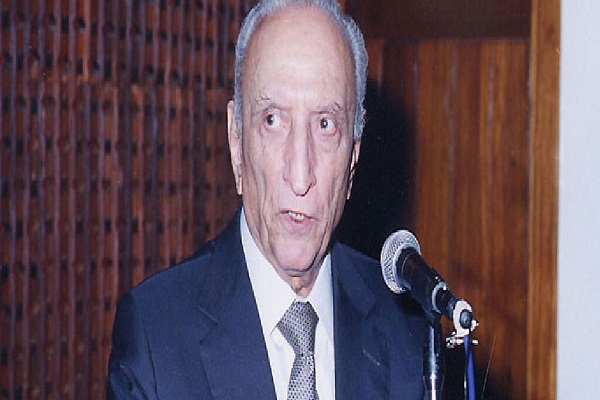Sahabzada Yaqub Khan was Pakistan-based military personnel, Linguist, pacifist, diplomat, statesman, and Pakistan Army’s retired-general. He attended Indian Military College, Dehradun and Indian Military-Academy. He participated as an officer in British Army’s Eighteenth K.E.O. Cavalry-Regiment in ‘World-War 2.’
After the partition of India in 1947, he came to Pakistan and after joining Pak Army participated in 1965 Indo-Pak War. He was designated as East Pakistan Governor in 1969 & 1971 but due to civil unrest came back to Pakistan.
He joined Foreign Service in 1973 and was named Pakistani diplomat to the U.S.A. This article carries every detail about him, including Sahabzada Yaqub Khan Biography.
| Title | Description |
|---|---|
| Personal | |
| Name: | Sahabzada Yaqub Khan |
| In Urdu: | صاحبزادہ یعقوب خان |
| Full Name : | Mohammad Yaqub Ali Khan |
| In Urdu : | محمد يعقوب علی خان |
| Famous As: | Prince Soldier |
| Nationality: | British Subject (1920–1947) Pakistan (1947–2016) |
| Residence: | Islamabad, Pakistan |
| Education: | Rashtriya Indian Military College, Indian Military Academy & Command and Staff College |
| Religion: | Islam |
| Profession: | Politician & Soldier |
| Awards : | Sitara-e-Pakistan |
| Born | |
| Date: | 23 December 1920 |
| Place: | Rampur, Uttar-Pradesh, British Indian Empire |
| Died | |
| Date: | 26 January 2016 |
| Age : | 95 years |
| Rest Place: | Islamabad, Pakistan |
| Career | |
| Political Party: | Pakistan Peoples Party |
| Cabinet : | Zia administration, Yahya administration & Benazir ministry |
| Member of the National Assembly | |
| Assumed office: | 11 November 1996 – 24 February 1997 |
| Ministry : | Foreign Minister of Pakistan |
| President: | Farooq Leghari |
| Prime Minister : | Moin Qureshi |
| Preceded by : | Asif Ahmad Ali |
| Succeeded by : | Gohar Ayub |
| Member of the provincial Assembly | |
| Assumed office: | 23 March 1992 – August 1995 |
| Ministry : | Special Representative of the Secretary-General for Western Sahara |
| Preceded by : | Johannes Manz |
| Succeeded by : | Erik Jensen |
| In Office | |
| Role: | Pakistan Ambassador to the United States |
| Dates: | 19 December 1973 – 3 January 1979 |
| President: | Fazal Illahi |
| Prime Minister: | Zulfikar Ali Bhutto |
| Preceded By: | Syed Mohammad Khan |
| Succeeded By: | Syed Mohammad Khan |
| In Office 2 | |
| Role: | Governor of East-Pakistan |
| Dates: | 7 March 1971 – 6 April 1971 |
| President: | Yahya Khan |
| Prime Minister: | Nurul Amin |
| Preceded By: | VAdm Syed Mohammad Ahsan |
| Succeeded By: | Lt.Gen Tikka Khan |
| Details | |
| Allegiance: | Pakistan |
| Service/branch: | British Indian Army (1940–1947) & British Indian Army (1940–1947) |
| Years of service: | 1940–1971 |
| Rank: | Lieutenant-General |
| Unit: | 18th Cavalry, Armoured Corps |
| Commands: | Eastern Military Command, East Pakistan 1st Armoured Division, Armoured Corps, Command and Staff College, Chief of General Staff |
| Battles/wars: | World War II, Siege of Tobruk, Indo-Pakistani War of 1965 & Bangladesh Liberation War |
| S/No. : | PA – 136 |
Table of Contents
Sahabzada Yaqub Khan Biography
Yaqub Khan was military personnel, Linguist, pacifist, diplomat, statesman, and belonged to a Royal-Indian family of Uttar Pradesh. For getting the education, he attended RIMC (Rashtriya Indian-Military College) at Dehradun and I.M.A. (Indian Military Academy).
His military colleagues respected him because of his knowledge about Bengali issues, and sometimes his colleagues labelled him ‘Bingos.’ In May 1942 he was taken as Prisoner of War in North-Africa where he interacted with his fellow prisoners and learnt some dialects during imprisonment in Germany.
He was known to have a command on 7-global dialects including Italian, Bengali, English, French, German, Urdu, and Italian. He passed away in Rawalpindi and senior and high-ranking military officials attended his funeral.
Yaqub Date of Birth
He was born on 23rd Dec 1920 in Rampur, Uttar-Pradesh.
Education of Yaqub
He attended RIMC (Rashtriya Indian-Military College) at Dehradun and I.M.A. (Indian Military Academy) and got commission in 1940 in British Indian-Army. He attached to Eighteenth King Edward’s Own-Cavalry.
Sahabzada Yaqub Khan Family
He belonged to a Royal-Indian family of Uttar Pradesh. The prefix Sahibzada is added to his name that represents Indian-Royalty. His ethnicity was Pashtun and hailed from tribe ‘Yousafzai.’ He is the son of Sir Abdus Samad.
He was a political figure and aristocrat and served as CM of Rampur and also representative of British India to L.O.N. (League of Nations).
He tied the knot with Tooba Khaleeli of Calcutta’s Iranian Khaleeli family and had 2-sons Najib and Samad.
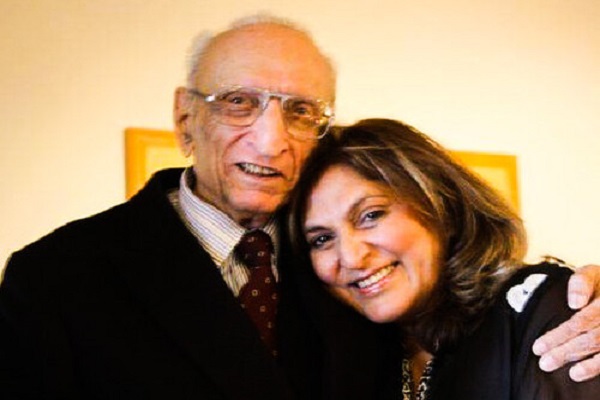
Career
Youth & World war-2
He saw World War-2 during his military career and performed in North-African Campaign. In May 1942 he was taken as Prisoner of War in North-Africa.
In Sep 1943 succeeded in escaping from Italian P.O.W. Camp P.G. Ninety-One in Avezzano and kept attempting for 4-5 months to move Allied Lines in South. Still, German Forces recaptured him and put him in P.O.W. in Germany till 1945 when the U.S.A. Army released him.
He interacted with his fellow prisoners and learnt some languages during his duration in imprisonment in Germany.
Designated as Adjutant
In 1945 he returned to India and got selected as an ‘Adjutant’ to F.M. (Field-Marshal) Archibald Wavell with an army major rank. After knowing about the foundation of Pakistan, he opted for Pak and initially selected as a personal assistant to Quaid-e-Azam-Pakistan’s 1st Governor-General.
Served as Commandant
He served as commandant of Governor General’s bodyguard for 1st Governor-General until 1948. From 1948 to 1949 he attended a short 1-year course at Quetta Command & Staff College and received a graduate degree in staff-officer.
Lieutenant Colonel in MI
He served as Lieutenant Colonel in MI (Military Intelligence) and instructed initiatives to I.S.I.’s analytical branch for whereabouts of Indian-Armed Forces. Still, he struggled with the provision of factual intelligence to I.S.I.
Promoted to Rank of Colonel
In 1953 he got promoted to the rank of Colonel and attended renowned ESM (École spéciale Militaire de Saint-Cyr) and completed graduation in 1954. In 1955 upon his return to Pakistan, he got promoted to the rank of Brigadier and served as chief-instructor at ‘Command & Staff College.’
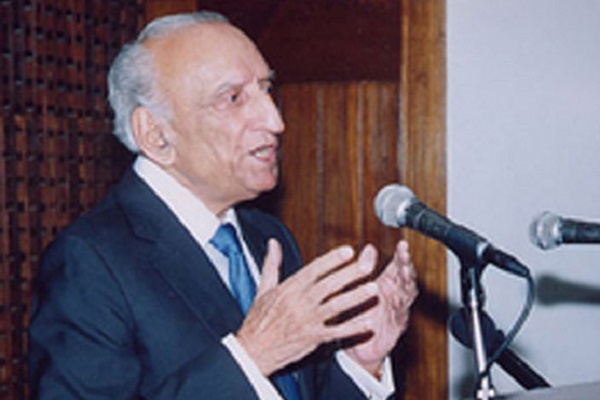
Staff & War-Appointments
Designation as vice C.G.S.
He was designated as vice C.G.S. (Chief of General Staff) at Army General Headquarters and later became commandant of C.S.C. Quetta in 1960.
Promoted to Major-General Rank
He got promoted to Major-General rank in 1960 and commanded Armoured Corps’ 1st Armored-Division. He was seen as a portrait of Erwin Rommel. Yaqub Khan arranged a philosophy course on ‘Panzer-Doctrine’ to train the armoured division on strategies and tank battles.
Served in 1965 War
He served in the war against Indian forces in 1965 and commanded his First Armored Division. He assisted in developing operational planning of AFV (Armoured Vehicular-Warfare) deployments against Indian forces heeding in province Punjab and gave his opinions at Army-GHQ.
Appointment as DGMO
Soon, he was designated as DGMO (Director General Military-Operations) by Gen Moosa Khan and supervised all forms of ground-operations during the war against Indian forces in 1965. After this 1965 war, he was designated in 1966 as C.G.S. at Army Head-Quarters under General Yahya Khan then Chief-General.
Military Advisor & Governorship
Posted to East Pakistan
President Yahya posted him in 1969 to East-Pakistan as Eastern Command’s commander in Dacca and assisted in the evaluation of command-rotation of Eastern Military. Soon, he got appointed as East Pakistan’s Governor and started learning Bengali dialect and Bengali culture.
His professionalism and stance earned him appreciation and respect by East-Pakistani Military officials. From 1969 to 1971 he advised Yahya’s administration with Admiral Ahsan to resolve the prevailing situation and the strictly restricted idea of the use of military forces in the province.
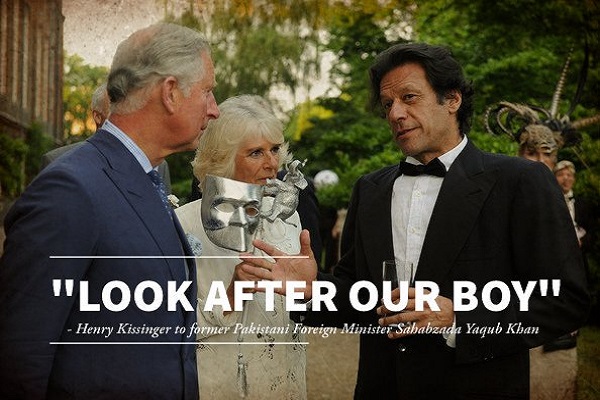
Resisted Military Usage
At cabinet meetings, he behaved strictly and fiercely. He opposed military usage, but his military colleagues respected him because of his knowledge about Bengali issues, and sometimes his colleagues labelled him ‘Bingos.’
In 1970 when Bhola cyclone hit the state Yaqub coordinated relief operations and gained respect for his struggles in the country.
Ahsan-Yaqub Mission
To resolve a political-deadlock between Pakistan and East-Pakistan he participated in fact-finding and area-contingency mission, and it was known as ‘Ahsan-Yaqub Mission.’ Both of them stated that ‘Military measures wouldn’t change political situations.’
Joined Army General Headquarters
His posting was again made in Pakistan, he joined Army General Headquarters and in 1971 served in winter-war against Indian forces and after war retired from the military.
Ambassadorship to the Soviet Union, U.S.A. and France
After he retired from the army, he started his career in 1972 in Foreign Service as a diplomat. At 1st he took the responsibilities of Pakistani Diplomat to France and remained at this post until 1973. In 1973 PM Zulfiqar Ali selected him as Pakistani diplomat to the U.S.A. and served at this post until 1979.
Khan was sent as an envoy of Pakistan to the U.S.A. when bilateral relationships between U.S.A. and Pakistan were cooling. He gained fame when he talked to Iran’s Ambassador Ardeshir Zahidi and Egypt’s Ambassador Ashraf Ghorbal to participate in defusing Hanafi Siege in Washington by a squad of America based Muslims in 1977.
He was designated as Pakistani Ambassador to the Soviet Union in 1979 and worked towards making relationships with the Soviet Union. In 1980 his appointment was again made in France, and he served there until 1982.
Foreign Minister
In Zia regime, he got appointed as Foreign Minister. As Foreign-Minister he generated a pro-American and proactive policy and also supported the U.S.A. sponsored Operation Cyclone to Afghani Mujahideen against Socialist Afghanistan.
Zia-ul-Haq received his pieces of advice on many principal issues, and Khan firmly gripped foreign policy of the country on pro-U.S.A foreign policy track as several military officials joined the Foreign Ministry. He kept serving foreign ministry after general elections 1985 by PM Muhammad Junejo.
Visited Different Countries
From 1984 to 1985 he visited the United Kingdom, United States, France, Soviet Union, Saudi Arabia, and China to create a framework for 1988 Geneva Accords. The Soviet Foreign-Minister Edward warned Yaqub about death and state funeral of Zia-ul-Haq that support of Pakistan for Afghani Mujahideen wouldn’t go unpunished.
In the 1980s during the Iraq-Iran war, he succeeded in maintaining close friendship of Pakistan with wealthy Arab States and Iran. After 1990 general elections he got inducted in 1st Shareef ministry by PM Nawaz Shareef and remained there until 1991. He left foreign ministry after the gulf war on 26th Feb 1991.
After resigning, he joined United Nations in 1992 and was named SRSG (Special Representative of the Secretary Gen for Western Sahara). In 1996 PM Benazir Bhutto reappointed him as ‘Foreign Minister’, but this time his appointment was short-termed as President Laghari dismissed Government of Benazir.
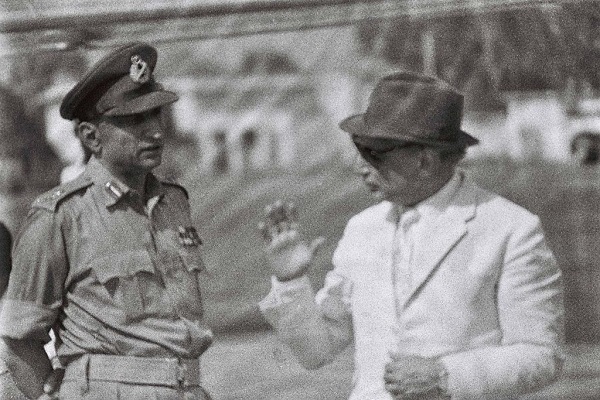
Post-Retirement
He was designated as the founding chairperson of Board-of-Directors of Agha Khan University that he chaired for 2-decades until he retired in 2001.
Sahabzada Yaqub Khan Death
He passed away at an age Ninety-Five in Islamabad and was embedded in Westridge Cemetery in Rawalpindi. The C.J.C. (chairman joint-chief) Gen Rashad Mehmood, Air-Chief Gen Sohail Aman, Army-Chief Gen Raheel Shareef, and Naval-Chief Muhammad Zakaullah, high-rank military and civil officers attended his funeral.
Sahabzada Yaqub Khan Autobiography
Khan, Sahabzada Muhammad Yaqoob Ali (2005). Strategy, diplomacy, humanity: life & work of Sahabzada Yaqoob Khan. Karachi: International Forum, Takshila Research University. p. 396. ISBN0-9755860-1-7.

